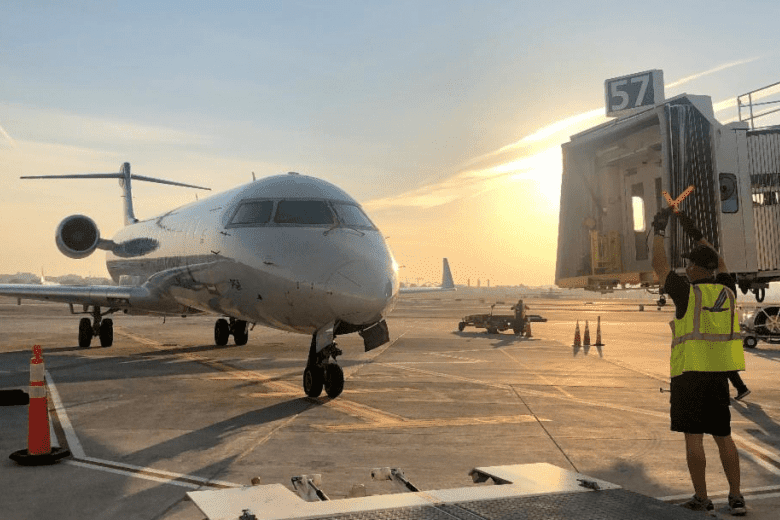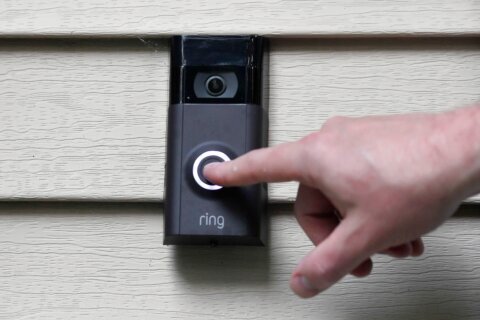The D.C. area, like other major metros, has seen a significant increase in private jet travel during the pandemic, but despite its convenience, few of those general aviation departures and arrivals are at Reagan National Airport.
More than two decades after the 9/11 terrorist attacks, cumbersome restrictions at DCA remain in place, meaning the vast majority of those who can afford to travel by charter, time share or even personally owned private aircraft choose Dulles International or other smaller regional airports.

Immediately following 9/11, general aviation was suspended entirely at Reagan National, less than three miles from the U.S. Capitol, but the federal government allowed it to resume in 2005.
All private jets using DCA are required to have a federal aviation safety officer on board, or ASO, an armed security professional that has been certified by the Transportation Security Administration. That is an added expense, and securing an independent ASO can be a challenge.
There are other restrictions that make Reagan National unattractive for some who travel by private jet.
“Ronald Reagan National Airport has a mandated regulation that it needs 24 hour notification of every passenger on the plane and the crew, who must be vetted. You may have a client that doesn’t wish to have their personal information subjected to government scrutiny. And you may not know how to find an independent ASO contractor, because there aren’t many of us,” said Robert Smith, a certified Armed Security Officer who is frequently contracted for general aviation flights at DCA.
General Aviation restrictions at DCA won’t likely be eased.
“I don’t think the restrictions at DCA are going to be changed anytime soon. I know some people want that, but I just don’t foresee it,” said Greg Brunson-Pitts, founder of Arlington-based private jet broker Advanced Aviation Team.
He referenced how the Capitol was evacuated on April 30 after police identified a small aircraft as a “probable threat.”
“The DCA waiver system is in place to prevent that,” Brunson-Pitts said.
The restrictions, officially the D.C. Access Standard Security Plan, are reviewed regularly by TSA. But it is not up to TSA alone. It is a member of the Interagency Airspace Protection Working Group, which also includes the Department of Defense, U.S. Secret Service, the Federal Aviation Administration and U.S. Capitol Police, the U.S. Park Police and the Metropolitan Police Department of D.C.
“These restrictions to general aviation flights arriving and departing Ronald Reagan Washington National Airport are due to its proximity to security sensitive sites such as the White House, Capitol, Pentagon and other locations in the immediate area. These restrictions are likely to remain in place for that reason,” the TSA said in an emailed statement.
Some corporate travelers and well-heeled leisure travelers are still willing to navigate the restrictions and added expense.
“We are here to accommodate and will do our best, however DCA waivers take time. If someone wants to use DCA on a very short notice it can be nearly impossible, especially over a weekend or holiday. Everything needs to be setup well in advance. Elected officials are in a different category and we can assist with those on shorter notice,” Brunson-Pitts said.
There was a 50% increase in general aviation departures and arrivals at Dulles between December 2020 and December 2021, and a similar increase at Reagan National, though general aviation at DCA is just a fraction of what it is at Dulles.
“I wasn’t surprised at all from the aftermath of COVID-19 and the surge in private air travel. What I am surprised by is the DCA demand,” Smith said, who believes Amazon’s new HQ2 in National Landing, actually named in part for its proximity to Reagan National, will further increase that demand, despite the restrictions.
For people with a background in law enforcement, ASO is a good career opportunity.
“You have to have a minimum of 15 years of law enforcement experience. You have to have the ability to carry a concealed firearm anywhere in the United States. You have to pass security screening and background check and obtain security clearance,” said Smith, a former New Jersey state trooper.
“It does pay well. The pay can range anywhere from $500 a day to a couple of thousand dollars a day. It all depends on the client, and how much they value their time and what kind of service you can provide the client,” Smith said.
It also means free travel. Because almost all departures mean a return as well, ASOs overnight, or even over-week in destinations all over the country.








